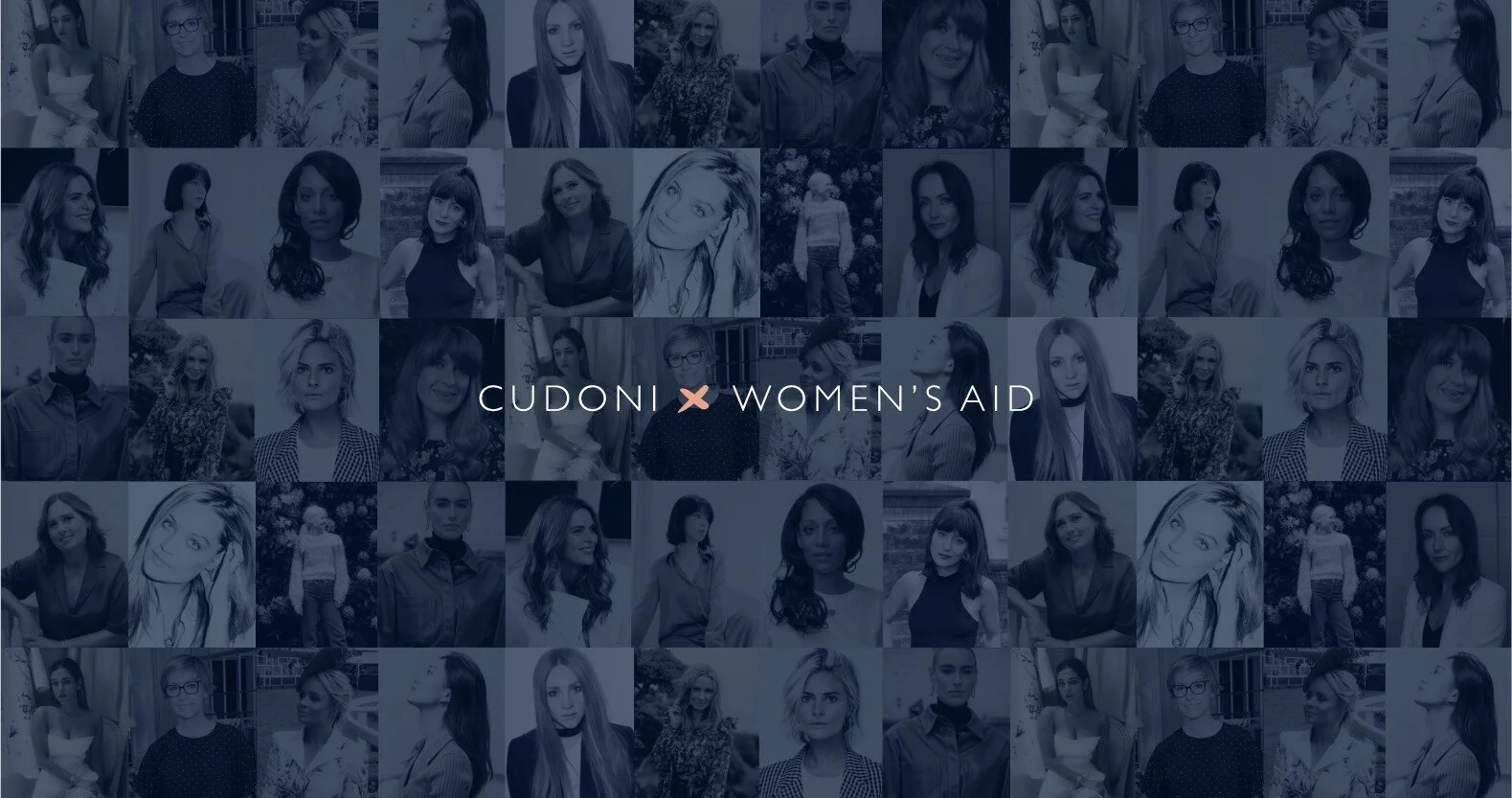Shopping sustainably could and should be the consumers ‘new normal’
Vintage shopping is somewhat of an experience and while some live for it, it doesn’t appeal to everyone. Days spent slogging through rail after rail of musty smelling clothes to find that secret hidden gem, longingly crossing your fingers that it has a huge name on the label tucked away inside with a tiny price tag. I know it well, I also love it but it can be time consuming. You’re not always guaranteed to find what you need and sometimes, though I’d rather not admit it, I find myself turning to the high street for a quick outfit fix when something comes up. However, quicker and potentially easier alternatives to hauling through vintage shops are rapidly growing, meaning you can buy something unique without the days worth of looking.
Lockdown and Covid-19 has seen people swapping makeup for face masks, bathroom luxuries for toilet roll and dressing up has been replaced by loungewear for the lack of anywhere to go. There has been an inevitable shift for consumers to turn to the more sensible and practical necessities. Moving forward, although I’m sure many are longing to dress up, it’s expected that consumers will be more careful and cautious with their purchases, due to the loss of jobs and lack of security weighing over many of us at the moment. The potential is there for the consumer to begin turning a blind eye to fast fashion, those quick pick up pieces that are so readily available and turn to more sustainable, long lasting options.
The conversation around sustainable fashion is ever growing. We have brands making movements from launching a sustainable line to committing to be sustainable within the not so distant future, magazines creating list after list of sustainable brands and celebrities speaking out, it is unavoidable for the consumer not to see and be affected by this shift. But dressing sustainably doesn’t have to mean not buying clothes, losing your sense of style or take the enjoyment out of shopping. There are now a number of ways you can shop sustainably while looking amazing.
Think of Depop for starters, available as a mobile phone app where you can tell the search bar what you want and it will find it for you. Pre-loved clothing is rapidly growing. Step forward and huge retail sites such as Farfetch or Browns have pre-loved or eco-conscious sections. More and more ethical brands are being created and far more established brands are being called out to improve their ethical and sustainable practises. Beyond this, there’s sites such as Vestiaire Collective, an online re-sale website where you can purchase pre-loved designer items. Fanny Moizant, Co-founder of Vestiarie Collective says that “pre-owned offers fashion lovers a way to access the fashion they desire in a more sustainable way,” luxury fashion items often sit unused, so what a perfect opportunity to expand their lifecycle. Even during lockdown, the site’s engagement, deposits and sales have seen an increase.
Similarly, there’s Cudoni. Also a re-sale site that believes, “there’s definitely a move for consumers to shop more ethically, the second hand luxury market just keeps growing.” Using Cudoni as a fashion specialist, you can purchase pre-loved clothing and trust the quality is guaranteed. Positively but potentially somewhat surprisingly, Cudoni has seen ‘an increase in purchases of preloved luxury items during lockdown, thanks to more time being spent online in general and at one stage, website traffic was up by a huge 435%.’
Sites such as these give us, as consumers, curated pre-loved clothing at our fingertips, giving us what we want without the hassle of searching. Furthermore, just to add to our societal never-ending need for more ease, there’s rental fashion sites too. By Rotation and HURR for example, allow you to download an app or visit their website, and within only a few minutes, the user can rent for a day, a week or a month, the most sought after designer pieces that they otherwise couldn’t have bought. While rental fashion has changed significantly, Victoria Prew at Hurr has said, “We've seen a surge in rentals for picnics, date nights, smaller gatherings and now holiday items too. Staycation wardrobes are also a huge focus as users are opting to stay within the UK this summer.” While buying pre-loved or renting for an occasion is exciting, a great concept and undeniably great for the environment, consumers, having everything at their fingertips and from the rise of fast fashion, could get bored quickly.
So the concept of bringing the new to the old seems timely. While we ease out of lockdown and many want to get back to ‘normal life’, the experience of shopping will have inevitably changed. The ease of shopping online is hugely present and the need to continue the care for the environment, lockdown has demonstrated is apparent. Preloved and rental sites have begun collaborating with designers, brands, influencers and come up with new ways to attract customers, to bring a feeling of new to old collections or pieces.
Old is The New New
Vestiaire Collective has joined forces with designer Rejina Pyo, to deliver an exclusive capsule collection of 50 ‘Future Collectables’, all showcasing hero pieces from the designer’s past seasons.
Available to buy on Vestiaire Collective, fans of the brand can expect to see key pieces from the designer’s archive, such as the SS17 Jamie dress, the SS18 Sylvia bag and the Nane bag. ‘This exciting and innovative partnership, aims to inspire consumers to focus less on trends and place importance on the longevity of their wardrobe.’ Fast fashion is hugely detrimental to our environment. “There was already an evolution towards an increased importance on sustainability taking place before this year but the health crisis has really escalated that,” comments Vestiaire Collective’s co-founder Fanny Moizant. Lockdown has arguably brought the way we shop and live our lives to the forefront of our minds. This collection launch gives consumers the chance to continue shopping and enjoying fashion but in a more sustainable way. ‘The pieces are timeless and aim to inspire consumers to focus less on trends and place importance on the longevity of their wardrobe.’ These collections also give the consumer the chance to shop hero pieces from past collections that they otherwise wouldn’t have been able to purchase.
Made For Me
In a similar fashion, By Rotation has teamed up with designer Natasha Fernandes Anjo for the By Rotation x Roop collaboration. The collection of four bags, available from just £5 are made from dead-stock satin and named after eco-warriors. By Rotation’s founder, Eshita Kabra-Davies shared that she is, “extremely excited to share that Roop's sustainably-produced bags are also circular in consumption.” Renting sustainable products is moving towards the ultimate goal of sustainable fashion. Both Natasha Fernandes Anjo and Kabra-Davies also feel this is a potential new beginning and way of shopping, with the designer stating that she is glad that her bags get to be a part of “the future of fashion and our attitudes towards it.” The 18,000+ members of By Rotation, stand as proof that the sustainable shopping side of the industry is rapidly growing. Holding a large collection of mid to luxury fashion and seeing a 40% increase in people downloading the app over lockdown, it is clear shopping sustainably doesn’t mean the decline in love for luxury.
Acting Upon Influence
Thanks to time being spent online during lockdown, Cudoni have seen an increase in purchases of preloved luxury items. James Harford-Tyrer, founder of Cudoni has said, “there seems to be a move where people are buying more vintage and pre-owned items, doing their research on particular brands before buying and supporting startups and emerging brands more than before, it looks set to stay.” Cudoni is one of many that has turned to names that fashion loves to help influence the consumer. While fast fashion brands feed the consumer with imagery of their favourite celebrity or have influencer’s post images in their clothes, it seems fit that other brands should follow suit. Cudoni however, has collaborated with people such as Alexandra Shulman, Pandora Skyes, Jo Elvin and Louise Thompson to sell their loved luxury items. Often, the profits made from someone’s pieces go to charity, for example Louise Thompson’s range is raising money for The Princes Trust. Cudoni also paired up with Women’s Aid during this pandemic and are launching a second wave of pre-loved clothing from a collection of high profile women, to raise money and awareness for the charity. These campaigns are encouraging people to buy but also sell, rather than hanging onto once-worn pieces and buying new.
An Experience
As we ease out of lockdown, many people are keen to get back to shopping physically, having missed the experience. While in lockdown, the use of online stores such as HURR, to list clothes spiked. As life starts to get back to some form of normal, how do these brands prepare for the change? Moving forward with rental fashion, HURR launched their exclusive pop up in Selfridges in February of this year. Victoria Prew has said that having a physical presence in store has proven to have a hugely positive impact. While rental is still a fairly new but growing concept, “giving shoppers the ability to interact with the product and try pieces has been hugely beneficial to the HURR brand.” It couldn’t be easier to rent clothing now. The consumer can essentially shop as normal, try clothes on and pick their favourite outfit, without the need of extra wardrobe space or the impact of mass buying on the environment. ‘The pop-up has made shopping sustainably easier than ever and will also drive positive long-lasting change in how the lifespan of a garment is viewed.’
Moving forward, as we continue to come out of lockdown, hopefully for good, it’s time to reflect on what has changed for the better and how we can continue to drive that change. Using shopping alternatives to enjoy fashion in a more sustainable way is arguably one of the simplest ways to make a change, while wearing more unique pieces and possibly labels you wouldn’t have before.











